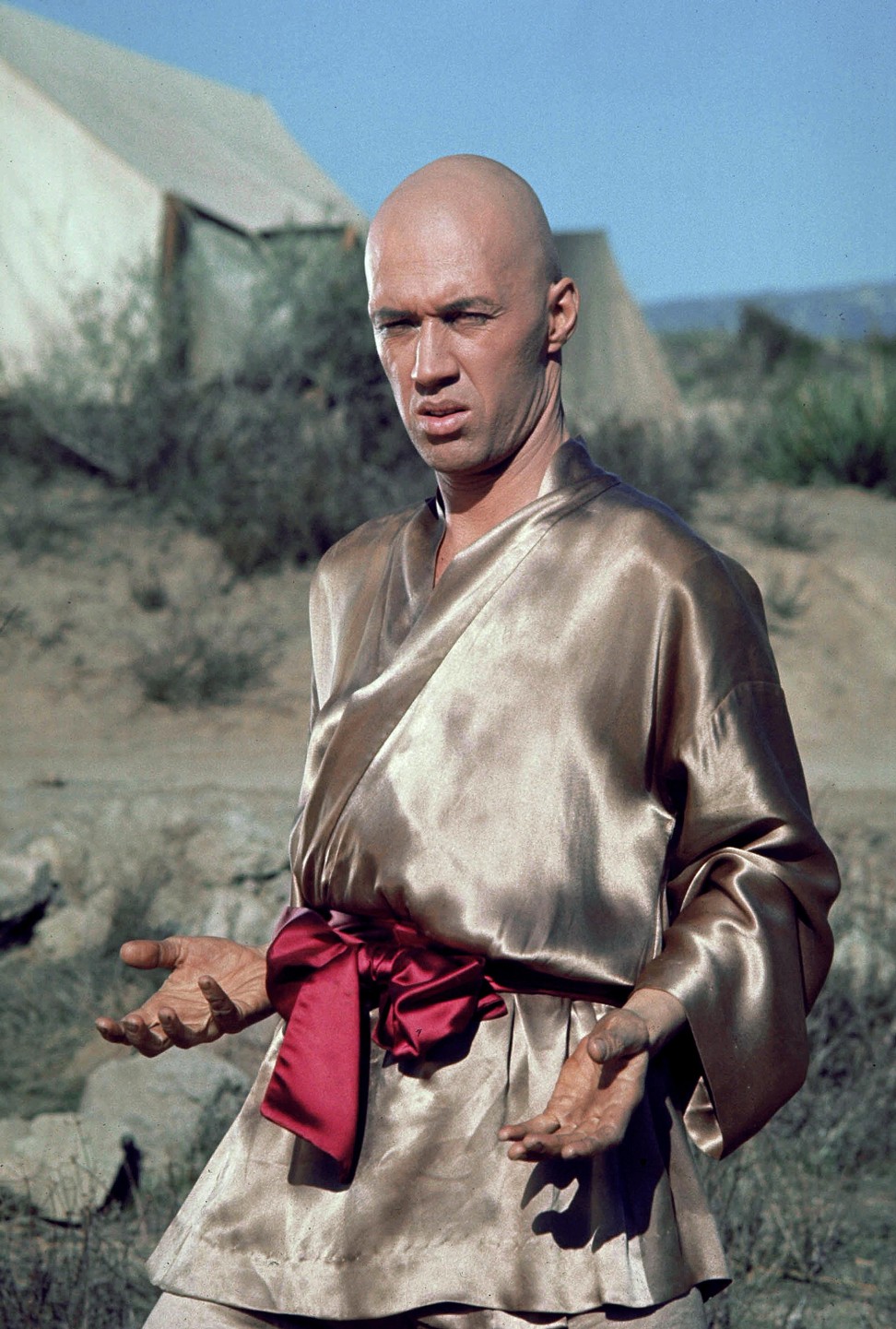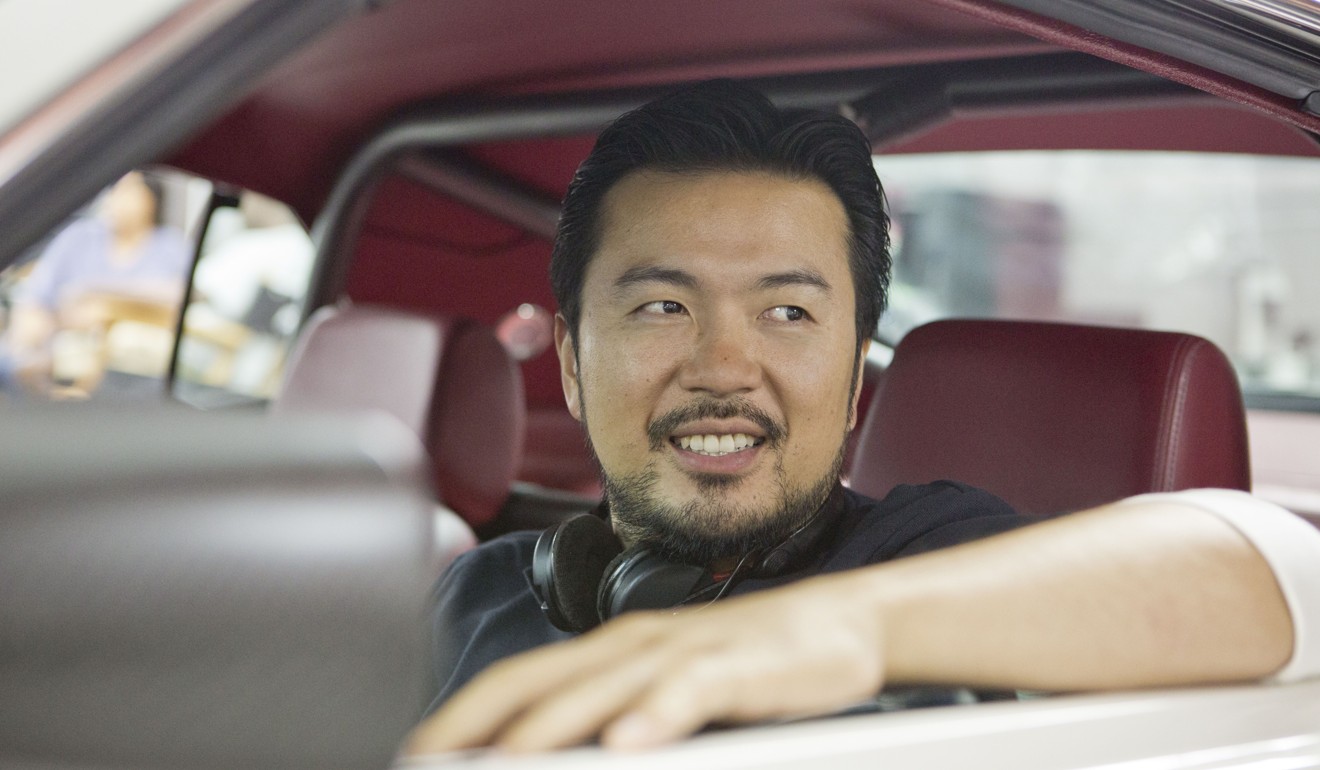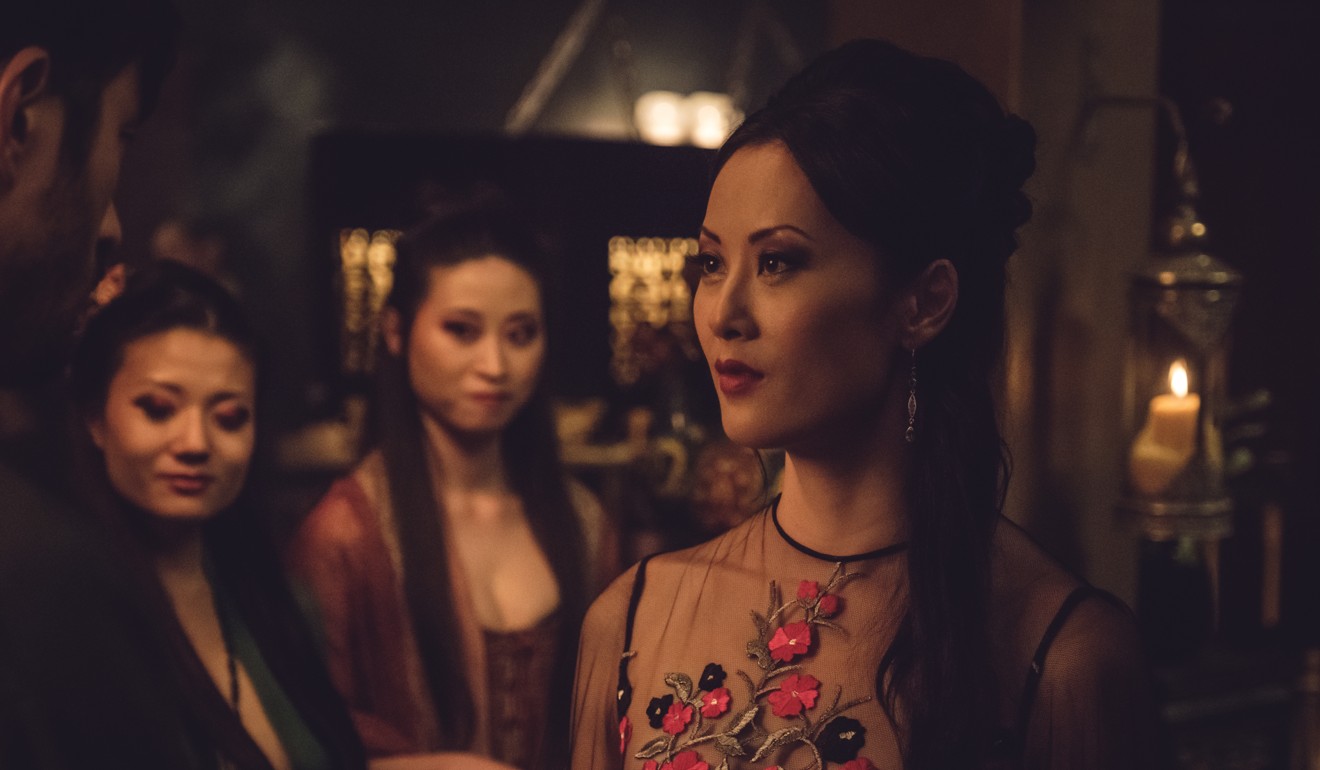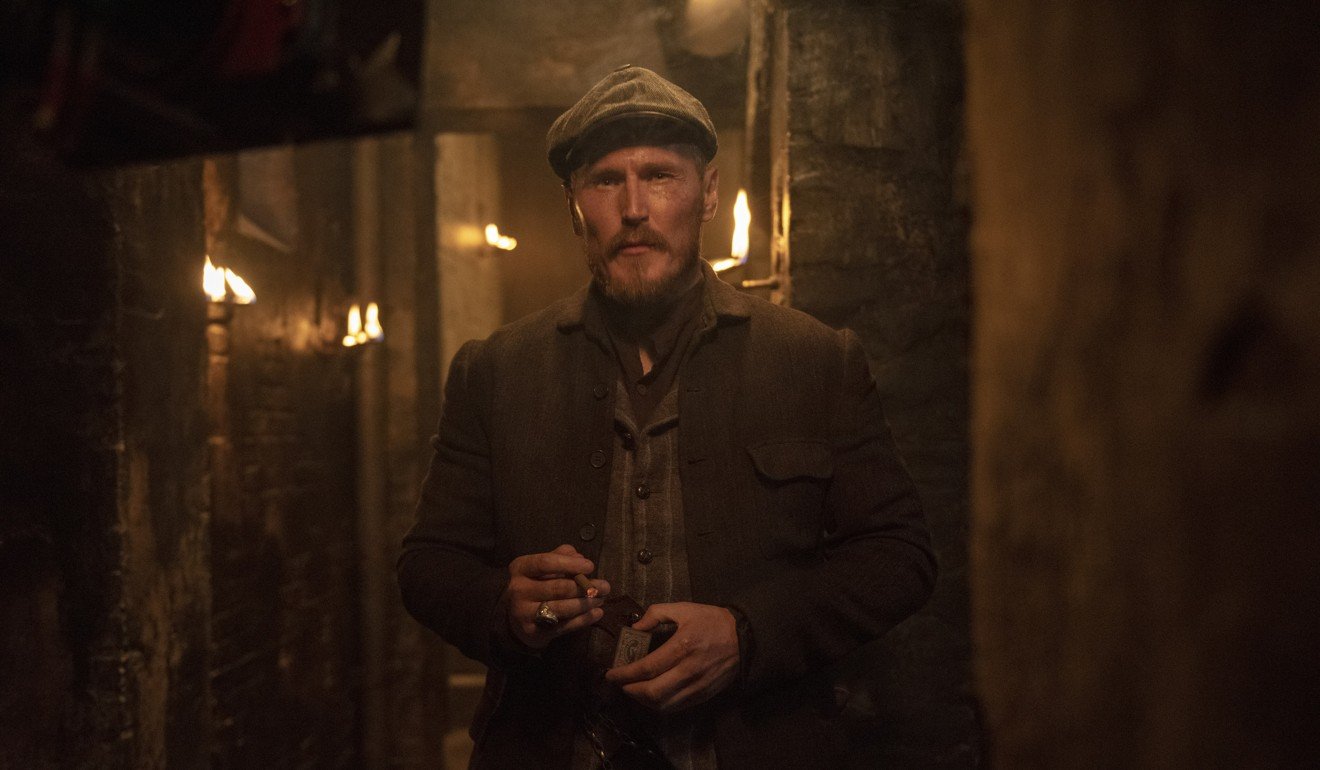
How Bruce Lee’s Warrior TV series was brought to life by his daughter and Fast and Furious director Justin Lin
- In the 1970s the martial arts star came up with a TV series about a Chinese martial artist wandering America’s Old West. The studios turned him down but released a similar series Kung Fu, with American actor David Carradine
- Lee’s daughter Shannon talks about finding her father’s drawings and notes and joining forces with Justin Lin to make the series
For decades, it was a half-whispered rumour – another puzzle piece in the already considerable urban mythology surrounding Bruce Lee.
This murky tale involved a television show – one that Lee had longed to make but never got the chance to. Another strand is a studio allegedly making a very similar sounding series with a white actor as the lead.
It would have remained an unsubstantiated footnote in Hollywood history meriting perhaps a few short paragraphs in a biography of the martial arts master and cultural trailblazer.
But decades after his death in 1973, Lee’s daughter went through his belongings and stumbled across a collection of drawings and notes – handwritten and typed – describing his vision for an unfulfilled passion project.

Her discovery led to Lee’s vision finally being realised. Premiering on Cinemax and HBO Go on April 6, the series Warrior is the tale of martial arts prodigy Ah Sahm – played by Fast & Furious 6 star Andrew Koji – who emigrates from China to San Francisco in the 1800s.
Searching for a mystery woman from his past, he finds himself caught up in the tong wars, the brutal battles fought between the city’s powerful Chinese organised crime families, or tongs.
From Charlie Chan to Crazy Rich Asians, the complex history of Asian Americans in Hollywood movies
Together with the show’s largely Asian cast, executive producers Shannon Lee and Justin Lin sat down with the Post in Los Angeles to explain what the series means for Asian representation in Hollywood, and for them personally.
Shannon, 49, Bruce Lee’s daughter with Linda Lee Cadwell, 73, recalls the moment she stumbled across her father’s papers.
“Growing up, I knew the story about my father not being cast in a TV series because he was a Chinese man, and they didn’t think a Chinese man could carry the lead in an American TV show. And that he had written the treatment for this show, but the show that went on to be made was called Kung Fu, starring David Carradine as a Chinese man,” Lee says.
That story went something like this: in the 1970s, Bruce Lee – a few years before his death at the age of 32 – wrote a pitch for a TV show about a martial arts master exploring America’s Old West.

But the Hollywood studios he pitched it to turned it down. Later, one of them made a series called Kung Fu (1972 to 1975) starring Carradine as Kwai Chang Caine, a half-Chinese Shaolin monk wandering through the Old West.
The show’s creator, Ed Spielman, said he based it on his own experiences in New York’s Chinatown. But for many, the suspicion that Lee had been wronged has always lingered.
“It had always been part of Bruce Lee lore that this transpired,” Shannon Lee says. “But it wasn’t until late 2000, when I took over looking after my father’s legacy, that the archive came into my possession – all of my father’s writings, photos and memorabilia. In the process of going through it, I came across the treatment for this show and a number of notes and drafts.”
The man who would help turn those notes into reality was Lin, a 47-year-old whose film credits have racked up more than US$2 billion at the global box office, a good chunk of that from the four Fast & Furious films he directed from 2006 to 2013.

The Taipei-born and California-raised filmmaker remembers being bemused when he saw Carradine in Kung Fu.
“Growing up, I was so confused watching David Carradine. I’m like, ‘Wait, he’s Chinese? But he’s not Chinese’. So it’s always been kind of my life’s journey to find out what the hell happened. But I wasn’t sure the lore was true so I called Shannon, and she said yes.
“A week later, we got together and she brought over the eight-page treatment that Bruce Lee had typed. It was amazing to be holding it in my hand. That’s when we decided, ‘Let’s complete what he started’.”
There’s nothing funny about Warrior and that’s what I’m most proud of. It represents the history of Chinese immigration, the brutality of working on the railways, and the reality of being influenced and pressured to join these notorious Chinatown gangs. It’s not a feel-good series. It’s a real series
The result is a series that fits with Cinemax’s emerging brand of original dramas – slick, sexy and action-packed genre series such as Banshee and Strike Back – only with extended martial arts sequences packed with references to Lee’s iconic films.
At the same time, it is a historical drama about the politics of immigration, xenophobia and culture clashes. And that is exactly as Bruce Lee intended.
“My father was very good at tapping into the Chinese experience, so he wanted this character to be an immigrant, to be arriving in the United States in this specific time period, which was post-Civil War, pre-Chinese Exclusion Act and right at this time when the railways were finished, the gold rush was ending, and Chinese people are now in the US and there’s a lot of tension around that,” Lee explains.
“My father wanted something of the authentic Chinese experience to be reflected in Hollywood and in the world. So all of his projects have a flavour of that.”

“Growing up in America, it was always frustrating to go to American history class and see there’s barely a paragraph on Chinese Americans,” Lin says. “Then you watch Westerns, and the Chinese are usually the guys with the queues doing laundry. There’s a whole experience that is never even acknowledged. So it was important for us to really bring that world to the screen so anybody, however they want to engage, know this is part of our history.”
For actors Olivia Cheng, Dianne Doan and Rich Ting, the project is unlike any they have previously been part of. For one thing, many members of the cast are Asian, still a rarity in the North American entertainment industry.
Doan, the Canadian actress who plays Mai Ling, the woman Ah Sahm is searching for, says: “I’ve always been the only Asian or the token Asian on set, to the point where I’ve kind of got used to it.
“It became almost competitive when you saw another Asian; it was, like, ‘Oh, how big a role do they have, because we could have only one,” says the 28-year-old, who is of Vietnamese and Chinese descent.
“But our cast really is like a huge family. It’s amazing to see all of us together on camera; the power of all of us charging together. That’s never happened before so it’s really special.”

Cheng, 39, is the daughter of Hong Kong immigrants to Canada. She portrays powerful Chinatown madam Ah Toy, a fictionalised version of a real historical figure.
For her, the politically charged issues Warrior grapples with feel all too familiar in the world today. It is ultimately about “what it takes for all of us to find our identity and carve out our place in the American dream”, she says.
On American and European screens, Asian women have often been depicted as mute, disempowered or virtually invisible. But Cheng and Doan get to be bad asses on this show, and Cheng promises it will upend some old tropes about Asian men, too.
“We dive into a time where the Asian male was so emasculated in the media and through the American lens,” she says. “We don’t shy away from diving into that perception, and playing within that as a way to answer to the social injustice of the time.”
Ting, 37, grew up in San Francisco and has Chinese and Japanese heritage. On the show he is Bolo – a character based on Bolo Yeung, Bruce Lee’s friend and co-star in Enter the Dragon (1973).

Although in recent years there have been a string of prominent Hollywood productions helmed by Asian names – films such as Crazy Rich Asians and To All the Boys I’ve Loved Before, and the television series Master of None and Fresh Off the Boat – Ting argues that Warrior breaks new ground because it does not sugar coat the Asian experience in the United States.
“It’s a drama action thriller; it’s not a romantic comedy. You’re not going to watch it and just feel good about yourself. You’re going to watch it and be grabbed by the intensity, the accuracy, by the violence, the blood, the sex.
“Crazy Rich Asians has done a lot for us as a community. It’s opened a lot of doors that were closed for decades,” he says. “But at the same time, it’s a comedy, and so are a lot of the television shows that highlight Asian Americans currently.
“There’s nothing funny about Warrior and that’s what I’m most proud of. It represents the history of Chinese immigration, the brutality of working on the railways, and the reality of being influenced and pressured to join these notorious Chinatown gangs. It’s not a feel-good series. It’s a real series.”
